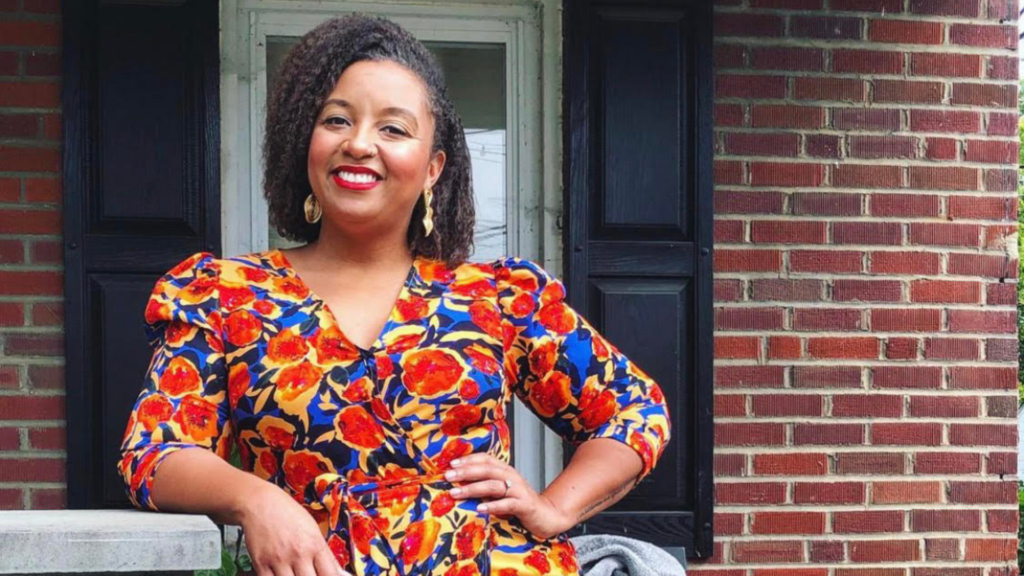Meet alicia sanchez gill, the HBCU grad fighting for social justice
As executive director of Emergent Fund, alicia sanchez gill works to ensure resources for Black, Indigenous and People of Color-led social justice movements.
alicia sanchez gill uses her diverse experience to fuel her passion for advocacy and change. Gill began her role with Emergent Fund from her role as Interim Executive Director of Collective Action for Safe Spaces (CASS). While at CASS, she organized across multiple issue areas impacting women and LGBTQ people of color in the DC area including the decriminalization of fare evasion.
Her work also included the creation of the District’s first queer and trans people of color-led Transformative Justice working group for survivors of interpersonal and state gendered violence.
Read More: Baratunde Thurston talks democracy, social justice, the 2020 presidential election and more

gill attended Howard University where she was able to understand more about herself and her racial identity. Growing up in Miami in a household with her Puerto Rican mother and Jamaican step-dad, she shared with theGrio the different iterations she has gone through calling herself throughout life.
“I primarily and firstly identify as Black because it doesn’t matter what country my family was from, they were Black in all of the countries. We used Black pretty exclusively in my house, even in Spanish or in English. For a long time, I identified as Caribbean,” she shared. “I think growing up in Miami is an important part of the context for how I identify myself racially. I think there’s a specific context to growing up in Miami, Florida, that at least for me, I will say deeply impacted how I viewed race.”
According to Miami Dade Matters, 71% of the population who call the south Florida city home identify as Hispanic/Latino. gill clarified that although a majority of the city residents speak Spanish, there is a clear distinction between who is and is not Black. She acknowledged that most of the population speaks Spanish. However, and in fact, there are very few places in Miami where Spanish is not the first language. As a Black family, there was a different experience sometimes when language came into play.
“In terms of race, it was also really clear. We would walk into places and people would question why we spoke Spanish or how we learned Spanish or would say anti-Black things about my mom thinking that we didn’t understand it. I was holding this idea that we were both a part of this community, but also being othered all the time by this community, particularly in the Latino community within Miami.“
Being AfroLatina, gill shared the importance of not erasing the Black existence from Latinx spaces.
“I think the political function is to center Blackness in everything we do and to center the intersection of Blackness with everything. There’s not a community where Blackness does not exist and where Blackness is not marginalized. Whether we’re talking about queer trans folks, Latinidad, the immigration narrative, in every state, disability, justice, like in every space, Black folks bear the burden of disproportionate violence, disproportionate, like poverty,” she remarked.
Read More: William Jackson Harper on his Emmy nom and protesting for social justice
Through her work at Emergent Fund, gill is able to provide resources to not only communities that need them but the grassroots organizers doing on-the-ground work. Emergent Fund was established in 2016 as national rapid response aid to explicitly support Black, Indigenous, and People of Color-led (BIPOC) social justice movements.
“Our goal is to move money really quickly to the folks who are doing organizing on the ground, the folks who need it most, and the people who are most impacted by in particular this administration. But of course, we know that many of these issues are long-standing and began long before this administration began,” gill told theGrio.
“We are centering the work of Black folks, indigenous folks, and folks of color who are organizing against harmful things like the Muslim ban, family separation, police violence. Our work is really to resource and fund movement builders and organizers, and we’re really guided by trust for those organizers.“
As the director, a majority of gill’s work involves raising and securing funds.
“Most days you can find me raising money from larger institutional funders and donors and talking about Emergent Fund’s work. The other half of that time is spent talking to our grantees and the folks who are doing movement building on the ground to see what they need from us, what they need from the philanthropic community and ecosystem as a whole, and how we can directly support their work with as few barriers as possible.”
Have you subscribed to theGrio’s podcast “Dear Culture”? Download our newest episodes now!
TheGrio is now on Apple TV, Amazon Fire, and Roku. Download theGrio today!
More About:News

